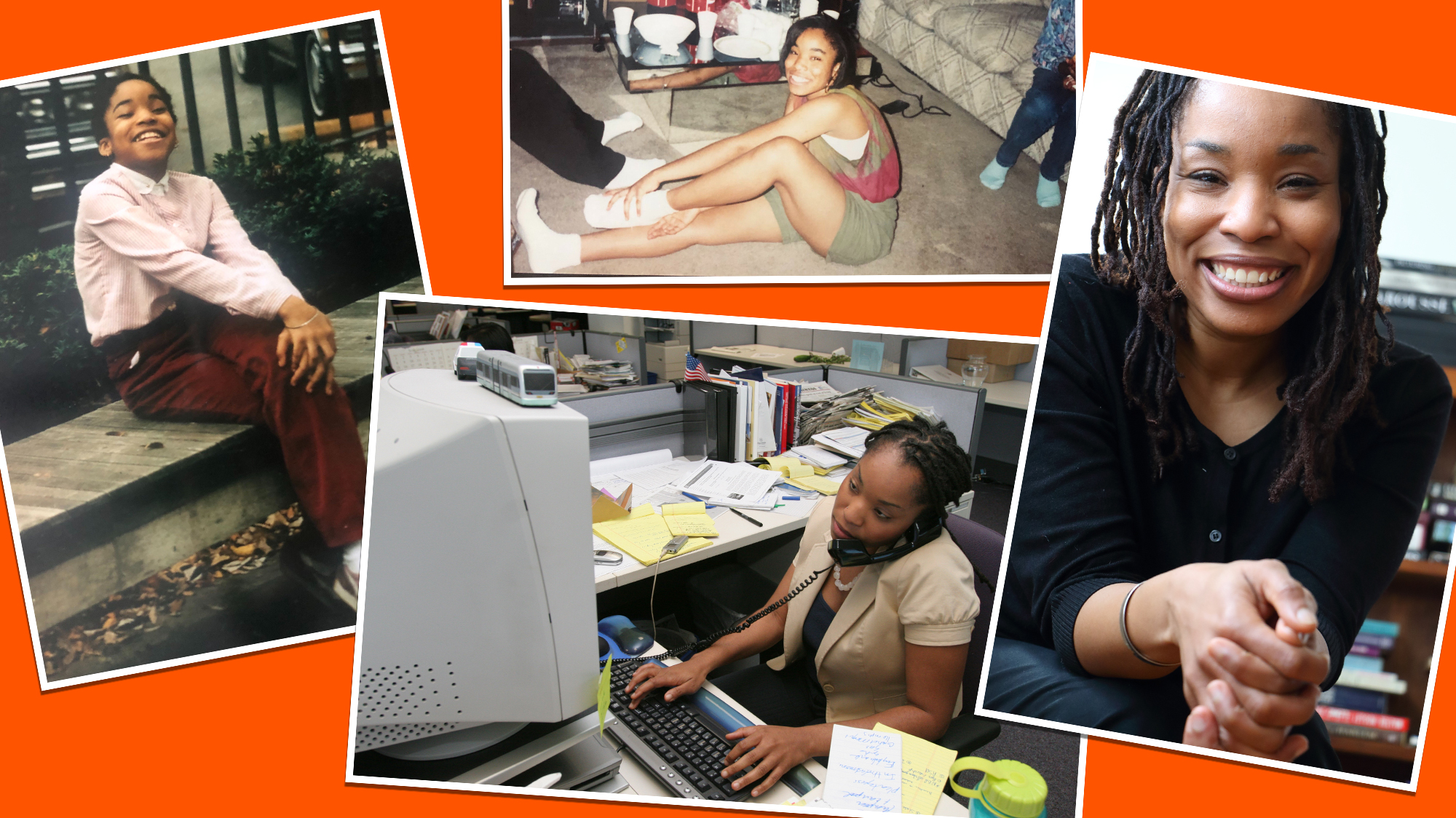Hi, I’m Jahna Berry.
I’ve never started a story like that before, because I spent 15 years as a reporter. But I’m writing to you today as Mother Jones’ chief operating officer.
I was director of product here a few years ago, and I rejoined the team in late February—which seems like eons ago. Within my first three months, our leadership team was tackling events that might happen once during someone’s entire career—a global economic crisis, a pandemic, a presidential campaign unlike any other, and historic civil rights demonstrations—all at once.
Now that I’ve had a brief moment to catch my breath, I want to introduce myself and learn more about why you read Mother Jones (there’s a form below to let me know). I’m trying to learn everything I can about this incredible organization and moment we’re in.
As a longtime reporter, I’m not used to talking about myself, so I’ll start at the beginning: I wanted to become a journalist because I want to tell truth to power.
My parents were voracious readers and news junkies. There were towering stacks of paperback books in our basement—The Autobiography of Frederick Douglass was wedged next to The Color Purple and Pet Sematary—and we watched the local and national news every evening. In our working-class Detroit neighborhood, we knew that government watchdogs don’t always bark, and news stories were often the only way that businesses and city officials would be held accountable.
I’ll be blunt: Those news stories from my childhood were far from perfect. At its worst, coverage of African Americans and other people of color could be racist and one-dimensional. That’s because structural racism is deeply embedded within traditional, majority-white newsrooms. It’s shaped everything from who’s hired to report the news to what has been considered “objective.”
But there was also great investigative reporting, which helped empower us. That’s how we found out about redlining and learned about communities that racially profile Black and Brown motorists. Without journalists, my mom often said, “we just would not know.”
As a kid, I wanted to be one of those changemakers who used truth to empower working families like mine. After college I moved to the Bay Area. I wrote about police misconduct in Oakland and, later when I was a reporter in Phoenix, I covered the job crisis in Arizona during the Great Recession. I was passionate about telling nuanced stories centering working families and people of color, empowering readers like the neighbors I grew up with.
Today, my job—and my passion—is building sustainable newsrooms, and that means a few key things to me in practice.
It means supporting journalists who help busy people understand issues in ways that go beyond memes and headlines, forging deeper connections with readers who are Black, Indigenous, and other people of color, and questioning many of the assumptions about the way we’ve always done things. In an era when news companies are choosing between billionaire support and shaky ad revenue, I want to help build a resilient reader-supported nonprofit that can hold the powerful accountable for years to come.
The second big key to sustainability? You. The people who find time to read, and who value, Mother Jones’ journalism and believe in our mission to tell truth to power no matter what. Supporting this work and the people who make it happen—our entire staff, and you, our community of readers—is the reason I joined Mother Jones.
That’s why I really want to know what draws you to Mother Jones and why journalism matters to you as I think through how I can have the greatest impact here (a story from me is below the form).
I’d like to share with you a moment that I think is one of the many high points in the events series.
As part of our (now-livestreamed) events where our journalists speak with changemakers, US Rep. Barbara Lee sat down with senior reporter and Mother Jones Podcast host Jamilah King. They talked about possible economic relief for Americans who’ve lost jobs during the pandemic; Lee’s career in public office; and her late friend Rep. John Lewis. I hope you’ll check it out. (You can see Ari Berman with Stacey Abrams and Fernanda Echavarri with Diane Guerrero, too.)
Lee recalled when she met Shirley Chisholm. Chisholm, then a congresswoman, was the first Black woman to run for president on the Democratic ticket. (Chisholm ran for president in the 1970s, decades before other Black women Democrats like Carol Mosley Braun and, later, Kamala Harris eyed the White House.)
Back then, Lee was an Oakland college student and a community organizer with the Black Panther Party. That encounter with Chisholm changed Lee’s life.
It really shows how profound things happen every day and that we’re all capable of incredible accomplishments that don’t always seem possible.
Which feels like a good place to wrap this up. Thanks for reading, and for everything you to do help Mother Jones tell truth to power.
















